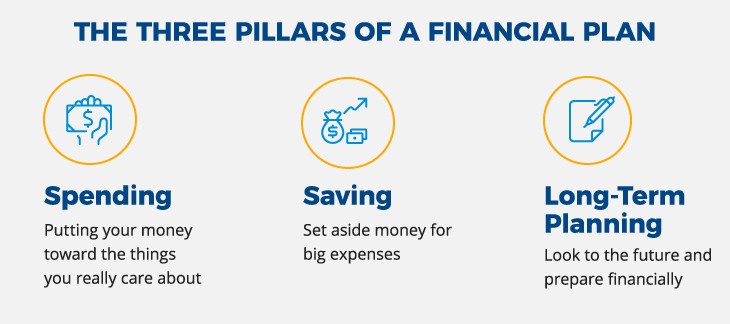Discover financial solutions that protect your future and provide peace of mind. Whether you're exploring annuities, life insurance, or understanding employee benefits through your workplace, Pacific Life offers resources and products designed to meet your personal and family goals.
Support your workforce with innovative employee benefits and retirement solutions. Pacific Life partners with business owners, benefits administrators, and pension fund managers to create customized programs that attract and retain top talent while securing their financial future.
Simplify complex retirement and pension risk management with our tailored solutions for large organizations. Pacific Life specializes in working with institutions to address their unique challenges, offering expertise in pension de-risking and strategic retirement planning for a more secure future.
Empower your clients with confidence by leveraging Pacific Life’s comprehensive portfolio of financial products. From annuities to life insurance, we provide the tools, resources, and support to help financial advisors and brokers deliver exceptional value and long-term results.
-
Individuals
Discover financial solutions that protect your future and provide peace of mind. Whether you're exploring annuities, life insurance, or understanding employee benefits through your workplace, Pacific Life offers resources and products designed to meet your personal and family goals.
-
Employers
Support your workforce with innovative employee benefits and retirement solutions. Pacific Life partners with business owners, benefits administrators, and pension fund managers to create customized programs that attract and retain top talent while securing their financial future.
-
Institutions
Simplify complex retirement and pension risk management with our tailored solutions for large organizations. Pacific Life specializes in working with institutions to address their unique challenges, offering expertise in pension de-risking and strategic retirement planning for a more secure future.
-
Financial Professionals & Brokers
Empower your clients with confidence by leveraging Pacific Life’s comprehensive portfolio of financial products. From annuities to life insurance, we provide the tools, resources, and support to help financial advisors and brokers deliver exceptional value and long-term results.
A financial plan can help you meet your needs today and reach your long-term goals.

Financial planning is about making the most of your money. Creating a financial plan helps ensure that your goals in life and the money you’ve earned and saved are working together to help you achieve what you want today and in the future. So how do you create a financial plan? There are a few key components: spending, saving, and long-term planning.

Spend on what you really want
Budgets are often negatively associated with limitations. But budgeting is not really about limits. It’s more about making sure you can spend on what’s really important to you. It’s taking a long-term view on your money, so you have enough left after your day-to-day expenses to put toward goals, purchase items, or have experiences that you truly care about.
If you believe you can save more or you struggle to pay for special-occasion spending like birthday parties or vacations, you can start your financial plan by looking at your spending habits.
If you do most of your banking online and use credit cards or other digital payment systems for most expenses, then the process of collecting all your spending information is relatively straightforward. All the spending activity is already recorded. All you need to do is organize it into buckets.
The first bucket covers fixed monthly expenses, like housing, food, gas, insurance, tuition payments, which are a priority. The second holds lower-priority items such as entertainment, dining out, streaming video services, or various subscription services.
Some people categorize their spending by going through each expense item with a highlighter, color-coded for each category. Others prefer spreadsheets. Regardless of what method you use, looking at all your expenses allows you to see where your money is going—and what you might want to adjust.
Save for what’s important to you
Saving is the next pillar in a financial plan. Start with near-term goals, which are anticipated expenses within the next three years. Estimate the costs of upcoming celebrations, a new car, or home improvements. Then start putting money toward those goals on a regular basis. Saving large sums, like $10,000, can feel more manageable if the goal is broken down into monthly contributions. Over three years, you could reach that goal by saving $278 a month.
Another important savings goal is to have an emergency fund. Starting or growing an emergency fund provides a cushion for unexpected expenses, like car repairs or medical bills. You should ultimately aim to save three to six months’ worth of expenses. That way you won’t have to dip into your other savings when these bills pop up.
Plan for long-term goals
Lastly, create room for long-term goals in your financial plan. Long-term goals can be anything a decade or more out. Retirement is likely your biggest goal, but it also could be saving for a home or helping your children pay for college.
Just like with near-term goals, estimate how much money you need to achieve your long-term goals. With long-term goals, you have a longer time to save and make your money work for you. Investing can maximize your savings efforts, thanks to the power of compound growth—and the sooner you start saving, the bigger the benefit.
Annuities also may play a role in helping you and your loved ones reach their long-term goals. Annuities grow your savings tax-deferred and can help provide protected lifetime income and a beneficiary benefit to protect your loved ones. There are different types of annuities—some allow you to invest in the market, while others offer a fixed rate of return not tied to the market’s ups and downs. A financial professional can help you determine which kind is best for your needs.
Financial planning is about having a plan for your money so that you can meet your financial needs today and achieve your long-term goals. Having a financial plan that takes into consideration your spending, saving, and future helps you gain a better understanding of what steps you need to take to get to the future you envision.
READ MORE

Retirement Planning
Talking Social Security With Mary Beth Franklin
Staying aware of current regulations set by the Social Security Administration can help retirees receive the full benefits they deserve.

Retirement Planning
Optimizing Social Security Benefits with Mary Beth Franklin
Women and other minorities can optimize their strategies for claiming Social Security retirement benefits by keeping a few key ideas in mind.

Retirement Planning
The Financial Pillars of Retirement with Mary Beth Franklin
Many people underestimate the importance of financial security in building an emotionally fulfilling retirement.

Retirement Planning / Family
How Annuities Can Boost Your Retirement Savings
The tax-deferred growth potential of an annuity can boost your savings for the future.

Retirement Planning / Family
How to Enhance Your Retirement Strategy with Cash Value Life Insurance
Your retirement strategy should begin with a tax-advantaged retirement account, but it doesn't have to end there. Supplementing your 401(k) or IRA with cash value life insurance can help give you greater financial flexibility during your lifetime while providing protection to your loved ones.

Family / Estate Planning
What Blended Families Should Know About Estate Planning
An estate plan with an Irrevocable Life Insurance Trust may help reduce estate taxes and ensure equitable distribution of a blended family’s assets.

Family / Estate Planning
Ensuring a Smooth Transition for Your Family Business
A plan that includes life insurance can help provide liquidity and equality in a family business succession.

Home / Estate Planning
How to Help Protect Your Estate Plan from an Uncertain Future
A life insurance trust can help provide flexibility and protection for the future.

Family / Estate Planning
Estate Planning for Unmarried Couples
Life insurance can help maximize wealth transfer for unmarried couples.

Family / Estate Planning
5 Ways Life Insurance Can Help With Estate Planning
As you develop or update an estate plan, considering the following ways life insurance can help address your needs.

Career And Business
Retirement Savings Options at a New Job
Weigh your choices before deciding where—or whether—to move your retirement savings when you switch employers.

Retirement Planning
Ways to Retire Confidently
If you’re concerned about saving enough for retirement, a protected source of income can help put your mind at ease.

Retirement Planning / Home
Don’t Put Off Saving for Retirement
Start building your nest egg early to prepare for the unexpected.

Retirement Planning / Family
Managing Your Beneficiaries’ Inheritance
An annuity with a predetermined beneficiary payout option can offer greater control without a trust.

Retirement Planning
How to Save on Charitable Giving During Retirement
Qualified charitable distributions can help with tax savings and at the same time give to charity during retirement.

Retirement Planning
Picking the Right Type of IRA for You
Understanding the difference between a traditional and Roth IRA can go a long way in planning your retirement savings strategy.

Estate Planning / Family
How to Cope Without the Family Breadwinner
Take these steps to help your loved ones prepare financially in the event the worst happens to you.

Career And Business / Family
A Smart Way for Philanthropists to Give More
A well-designed charitable remainder trust can help lower taxes and aid in financial planning.

Retirement Planning
The Challenges of Living Longer
The good news: Retirees are living longer. The bad news: That may mean retirees will have to fund more years of retirement.

Retirement Planning
Make the Most of Your Retirement With an Informed Income Strategy
Annuities offer another way to put a floor under your retirement income, providing an retirement income stream in exchange for an initial investment. Immediate annuities begin issuing payments soon after you make your investment, while deferred annuities are invested for a period of time before you start taking withdrawals. You can also choose between fixed (-rate) and variable annuities. Fixed annuities earn a guaranteed interest rate over time, while variable annuities are tied to the performance of an investment portfolio. Both provide monthly income for life and protection for your loved ones through a death benefit.

Estate Planning / Family
Finding a Way to Hand Over a Family Business
Creating a detailed succession plan is paramount for a smooth and profitable transition.

Family / Retirement Planning
Balancing the Care of Aging Parents and Children
There are ways to ease the burden of this high-stress juggling act.

Retirement Planning
Deciding When to Claim Retirement Benefits
Keys to Optimizing Social Security Income.

Home
How Tax Reform Impacts Retirement and Estate Planning
The new tax law will alter many decisions you may have to make when filing your 2018 taxes.

Retirement Planning
The Importance of Investment Diversification
Methodically placing assets in several baskets isn’t as thrilling, but helps you invest responsibly.

Estate Planning / Family
Protect Your Loved Ones With an Estate Plan
Taking a proactive approach to passing on your assets can help bring peace of mind to you and your family.

Retirement Planning / Home
Choosing a Financial Professional
When searching for the right financial professional for you, start with these 7 questions.

Retirement Planning / Family
Four Ways to Access the Value of a Life Insurance Policy
Life insurance isn’t only for your survivors: Find out how to use its cash value during your lifetime.

Retirement Planning
Women & Finances: Securing Your Retirement
Strategies to help make sure your retirement savings last for life.

Retirement Planning / Family
Women & Finances: Strengthening Your Finances After Divorce
Make sure your retirement plan is still on track.

Family / Home
Women & Finances: Moving Beyond the Loss
The loss of a significant other can offer an opportunity to learn about financial empowerment.

Retirement Planning
Weathering a Turbulent Market
Worried investors would do well to remember that historically, markets recover after a downturn.

Family / Home
The Surprising Affordability of Term Life Insurance
A life insurance policy isn’t as expensive as you think.

Family / Home
Get the Most Out of Your Annual Financial Check-Up
A yearly financial review is a good way to stay fiscally healthy.

Retirement Planning / Family
How to Buy an Annuity
Choose the right annuity plan that aligns with your financial goals.

Family / Home
6 Life Insurance Myths Debunked
Don’t let these common misconceptions prevent you from giving your family the protection they deserve.

Healthcare / Family
Planning for the Cost of Healthcare in Retirement
Trying to anticipate what you’ll spend on healthcare in retirement can seem daunting, but estimates can help you start preparing for the future.

Family / Home
The Benefits of Rethinking Work-Life Balance Before Retirement
Achieving better work-life balance now can help position you for a more fulfilling future.

Family / Estate Planning
How to Buy Life Insurance
These four steps can help you choose the best protection for you and your family.

Retirement Planning / Family
How to Lower Your Taxes in Retirement
You’ve worked hard to build your retirement savings. Now, make sure your money lasts by considering strategies to lower taxes.

Home / Family
The Importance of Financial Literacy
Learn about basic concepts regarding financial literacy: budgeting, saving, debt/spending, and financial management.

Retirement Planning / Family
Make the Most of Your Money with a Financial Plan
A financial plan can help you meet your needs today and reach your long-term goals.

Family / Home
Money Moves to Help You Feel More Confident
Build a stronger financial foundation with these four steps.

Family / Home
Supporting Multiple Generations
Tips for families with many generations living together so everyone stays financially healthy.

Family / Estate Planning
Securing Your Family’s Future
Having an estate plan is essential to maintaining your family’s financial security.

Retirement Planning / Family
4 Ways to Help Turn Income Into Wealth
Build your wealth by incorporating these strategies into your financial plan.

Career And Business
Why Employee Benefits Matter
The key to attracting top talent goes beyond trendy perks.

Retirement Planning / Family
How Much Life Insurance Do I Need?
These key factors can help you figure out your life insurance sweet spot.

Retirement Planning / Family
Less Stress More Security
How to reduce anxiety and bolster your retirement with reliable protected income.

Retirement Planning / Family
How to Generate Retirement Income
Three important questions to ask before you reach retirement age.

Retirement Planning / Family
Saving Now for the Retirement Income you Need Later
Following these steps can help you save enough money to make your retirement dreams come true.

Home / Estate Planning
Using Life Insurance and Annuities in Estate Planning
Adding these two financial products could help you achieve your estate planning goals more efficiently.

Family / Estate Planning
Using Life Insurance for Generational Wealth Transfer
Five reasons to consider permanent life insurance for transferring wealth to children or grandchildren.

Family / Home
What to know about Cash-Value Life Insurance
If you’re in the market for life insurance protection, don’t overlook permanent life policies.

Career And Business / Family
How Key Person Life Insurance Can Benefit Your Business
Life insurance for an employee your business can’t live without
All guarantees are subject to the claims-paying ability and financial strength of the issuing insurance company and do not protect the value of the variable investment options, which are subject to market risk.
The above is provided for informational purposes only and should not be construed as investment, tax, or legal advice. Information is based on current laws, which are subject to change at any time. You should consult with your accounting or tax professional for guidance regarding your specific financial situation.
Annuity withdrawals and other distributions of taxable amounts, including death benefit payouts, will be subject to ordinary income tax. For nonqualified contracts, an additional 3.8% federal tax may apply on net investment income. If withdrawals and other distributions are taken prior to age 59½, an additional 10% federal tax may apply. A withdrawal charge and a market value adjustment (MVA) also may apply. Withdrawals will reduce the contract value and the value of the death benefits, and also may reduce the value of any optional benefits.
All investing involves risk, including the possible loss of the principal amount invested. The value of the variable investment options will fluctuate so that shares, when redeemed, may be worth more or less than the original cost. Please see the prospectus for a detailed description of investment risks.
Under current law, a nonqualified annuity that is owned by an individual is generally entitled to tax deferral. IRAs and qualified plans—such as 401(k)s and 403(b)s—are already tax‑deferred. Therefore, a deferred annuity should be used only to fund an IRA or qualified plan to benefit from the annuity’s features other than tax deferral. These include lifetime income and death benefit options.
Pacific Life refers to Pacific Life Insurance Company and its affiliates, including Pacific Life & Annuity Company. Insurance products are issued by Pacific Life Insurance Company in all states except New York and in New York by Pacific Life & Annuity Company. Product availability and features may vary by state. Each insurance company is solely responsible for the financial obligations accruing under the products it issues.
Pacific Life’s Home Office is located in Newport Beach, CA.
PL66


